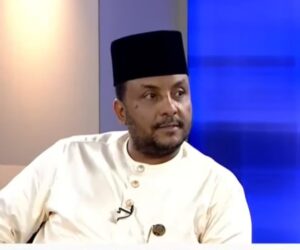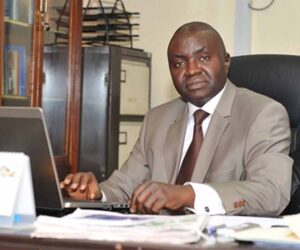The federal government is working to avert a looming nationwide strike that may paralyse academic activities across all government owned universities in the country, Daily Trust gathered last night.
It was learnt that representatives of the federal government from the ministries of labour and employment as well as education are planning to meet with the officials of the Academic Staff Union of Nigerian Universities (ASUU).
Our correspondent reports that the development is coming ahead of the August ending deadline given by the university lecturers to shut down their respective institutions over unmet demands by the federal government.
SPONSOR AD
The nationwide protest embarked upon by the union on Tuesday across all the campuses paralysed academic activities while members of the union expressed readiness to shut down institutions whenever a strike is declared by its leadership.
In an interview with one of our correspondents last night, the spokesperson of the Education Ministry, Mrs Folasade Biriowo, confirmed that a meeting has been scheduled for today (Thursday) to avert the strike.
Biriowo, also a Director in the ministry, said, “The federal government is set to hold a meeting with the ASUU leadership this morning (Thursday) at the ministry to know the fate and avert the strike.”
But when contacted, the President of ASUU, Prof. Chris Piwuna, told Daily Trust in a telephone interview that the leadership of ASUU has not been formally invited for any meeting.
“As of now, we’ve not been invited for any official meeting. Of course, if they invite us, we would go but we have not received any official invitation,” Piwuna, the University of Jos Professor explained.
Both Minister of Labour and Employment, Muhammad Maigari Dingyadi and the spokesperson of the Ministry, Mrs Patience Onuobia could not be reached, as several calls to them were not answered.
Top among a wide range of issues causing rift between the two parties include non-signing of 2009 renegotiation agreement, which ASUU President said if signed today, it would be 2025 agreement.
Other issues, according to the union, are non-payment of three-and-half month withheld salaries, non-payment of promotion arrears and non-release of revitalization funds to make the university environment conducive.
Some branches of the union are also protesting the non-remittance of third-party deductions, the renaming of the University of Maiduguri after late President Muhammadu Buhari, N150, 000 monthly retirement benefit to the professors, which has been described as a “national embarrassment”, among others.
In an interview with the Trust TV earlier on Wednesday, ASUU President accused the federal government of failing to implement any of the agreements reached with the union, arguing that ASUU had consistently engaged the government in dialogue, but no part of the negotiated agreements had been enforced.
The varsity don said, “We have always made ourselves available to the government. Anytime they call us, we come from Calabar, Port Harcourt, Jos and other places to meet in Abuja. Dialogue has always been our first option.
“But there’s no part of the agreement that has been enforced. We have agreed with the government team on each of the items – funding, conditions of service, academic freedom, university autonomy, and review of some laws among others. What is left is for the government team to take action.”
He explained that while collective bargaining with the government’s negotiation team had produced documents both sides agreed upon, implementation had stalled.
“There is no disagreement between us and the government on each of these items. What remains is for them to return to their principals (the ministry of education and the federal government) and say ‘look, these are the things we’ve agreed with ASUU. Do you accept it? So we can go back to ASUU and tell them you’ve accepted this, and tell them you don’t want this.’
“So, on the items we have agreed with them, it’s just for them to get back to us on what their principals have agreed to. That is where we are stuck.”
Prof. Piwuna, who is also a medical doctor, linked the mass exodus of professionals from universities and teaching hospitals to poor salaries and conditions of service.
“In the Jos University Teaching Hospital (JUTH) where I work, at least 20 consultants have left in the last two years. As a head of department, hardly three months pass without my signing a reference letter for a doctor relocating abroad.
“It’s the same for lecturers. If everybody is leaving because of salary, why can’t you improve the salary and retain the staff?” he revealed.
150 varsities risk shut down; about 2 million students to be affected
Speaking further during the telephone interview, the union leader disclosed that if all the branches of the union agree that the campuses are shut down, not less than 150 public universities would be affected.
He added that about two million students would also share from the experience nationwide.
ASUU president said, “We have never left the state universities in the issues like this. When issues concern federal universities, it also concerns the states-owned because they are all public universities.
“At least 150 schools will be affected while about two million students will share from the experience. Take for instance, the University of Jos, where I work has 34,000 students. Take the average for both second and third generation universities. It may be near two million.”
He noted that Nigerian lecturers are being absorbed by other African countries. “In Uganda today, you will not find fewer than 20 Nigerian lecturers, sometimes in one university,” he said.
The union leader further lamented the poor state of facilities in Nigerian universities, which he said contributes to their low ranking globally.
“Out of 333 universities in Nigeria, fewer than five are in the top 1,000 in Africa. Our pay is low, facilities are not upgraded, and conditions of service are poor.
“Go to any public university and ask female lecturers if they are comfortable using the restrooms. Many would rather drive home before returning to campus,” he said.
Prof. Piwuna insisted that lecturers are not happy with strikes but are compelled to use them as a last resort.
“Lecturers are not happy with strikes. Our students are our children. Our wives and relatives are in the system. We are all affected. But unless the government addresses these issues, instability in the system will continue,” he warned.
He urged the media, traditional rulers, religious leaders, parents and civil society to join in advocating for reforms in the education sector.
“This is not about ASUU. ASUU is only fighting for a better system. It is about our future and about our country,” he added.
Expert speaks
Commenting on the issue, an educationist, Dr Suleiman Babayo of the National University of Lesotho, said the consequences would be severe.
“The already decaying education system in the country is collapsing. Nigerian universities are not competing even with their African counterparts,” he said.
He warned that students could be forced to stay home for months, delaying graduations and career progress.
“Academic staff will suffer because the government might activate the ‘no work, no pay’ policy as a form of punishment. This will destabilise the academic calendar and discourage many Nigerians from attending public universities,” Babayo added.
On resolving the impasse, Babayo urged the government to implement the agreement it had already signed. “There is an already signed agreement—reached, signed, stamped, accepted by the government. All the government needs to do is implement it.”
He criticised the government’s repeated pattern of calling ASUU to the table only when a strike is imminent. “Whenever ASUU threatens to go on strike, the government calls them, promises action, forms a committee, and then disappears for months.”
Babayo also questioned the government’s priorities. “If the government can award a N15 trillion contract for the Lagos-Calabar Coastal Road, injecting N1 trillion into the education system shouldn’t be a problem. Just pay the outstanding arrears and implement the signed agreement. That is the end of this.”
He queried the government’s recent offer of loans to ASUU members, “Why offer loans to people you owe? Just pay their entitlements. This is a bizarre policy. If the government is serious, it can resolve this within a week.”








